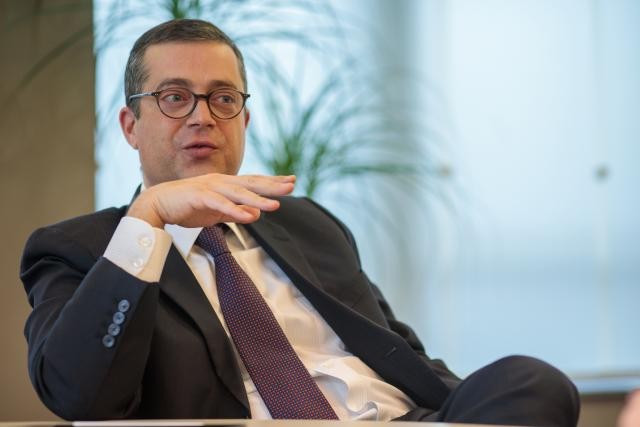This represented an overall 3% growth for the firm which was achieved through its audit and tax lines, which witnessed an 8% and 7.5% growth, respectively. The advisory and consulting line on the other hand witnessed a 3.5% decrease.
At the heart of much of Wednesday’s press conference was how the covid-19 context has raised new challenges, also for companies with which Deloitte Luxembourg works.
“Despite the current context, it is very clear during this time that no one should underestimate the consequences of this crisis,” managing partner John Psaila said. Nevertheless, “these results are solid and show that our firm will continue to succeed.” He added he is “confident in the future”, and that two axes have been core to that outlook: first, a “people-first strategy”, and second continuing to offer quality services to clients in light of the changes.
Deloitte globally posted a $47.b reported aggregate revenue, with 5.5% growth.
Audit, tax, advisory lines
For Deloitte Luxembourg, the audit line witnessed strongest growth at 8% (versus 7% in 2019). As audit leader Christiane Chadoeuf explained, this can be attributed to industry and private equity/real estate, as well as commercial and insurance sectors. “Resilience, digitalisation, agility” have been at the heart of that transformation, and in the future there will be continued focus on its people and technology.
Tax growth, at 7.5% (compared to 10% for FY2019), was strong not only in the first three quarters of the fiscal year (1 June 2019-31 May 2020), but also as of 13 March, in part because of “difficult to satisfy new demands”, per head of tax Bernard David. In addition to tax reporting becoming “more and more complex”, a variety of new regulatory measures, including OECD’s framework for BEPS, have also forced actors to review their situations and adapt accordingly. Luxembourg’s creation of vehicles to attract alternative investments has also proved beneficial, while transfer pricing is requiring “more harmonisation…[and] more precise documentation”. Looking forward, digitalisation will be key, “also for tax authorities”.
The results of the health crisis have impacted the advisory & consulting line, on the other hand, which had a slight decline of 3.5%. This is in part due to some client projects having been stopped or delayed, plus an export of services abroad. Patrick Laurent, who heads the group, added that the public and manufacturing sectors are witnessing nice growth, “which hadn’t necessarily been the case in previous years”.
Addressing health crisis challenges
One of the challenges Deloitte Luxembourg has witnessed has been to reinforce its company culture through remote working, according to both Laurent and COO, Pierre Masset.
As Masset explains, the crisis was “quickly…on our radar”, and from January through March the firm had already mobilised a crisis unit to ensure safety of staff and that a continuity plan was in place. IT processes were reinforced so that key processes could continue in case of shock, and client services could continue without interruption.
By mid-March, teams could work remotely. Masset adds that the firm also identified individuals who might have been new to the grand duchy, or without family or other forms of support. While by mid-summer the teams were slowly returning to the office, by October, it was decided to go back to teleworking, and employees were to only come in as necessary. He added that there are approximately 350 currently working regularly from their offices, although in an “infrastructure that can handle a lot more” than that.
